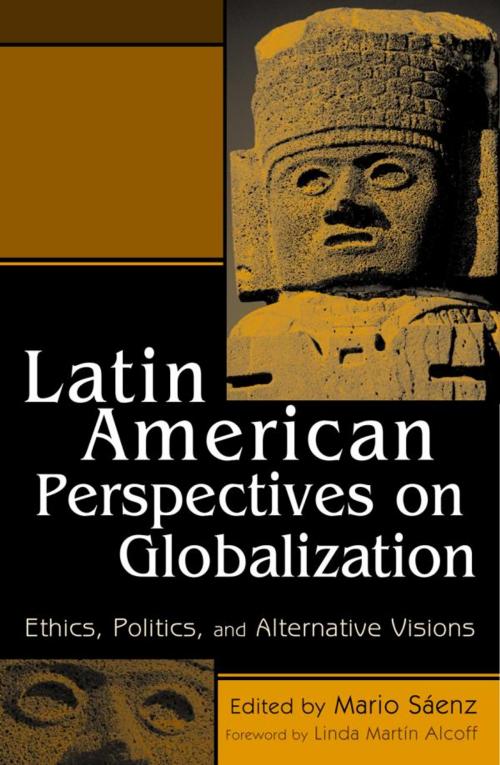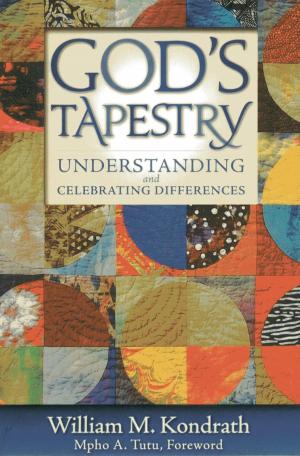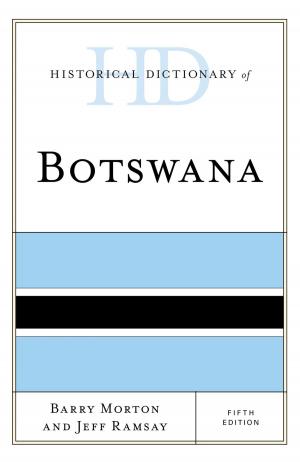Latin American Perspectives on Globalization
Ethics, Politics, and Alternative Visions
Nonfiction, Religion & Spirituality, Philosophy, Epistemology, Fiction & Literature, Literary Theory & Criticism, Theory| Author: | Debra A. Castillo, Santiago Castro-Gómez, Rafael Cervantes Martínez, Felipe Gil Chamizo, Raúl Fornet-Betancourt, María Mercedes Jaramillo, María Pía Lara-Zavala, Eduardo Mendieta, Iván Petrella, Roberto Regalado Álvarez, Mario Sáenz, Ofelia Schutte, Leopoldo Zea, Jorge J. E. Gracia, Walter D. Mignolo | ISBN: | 9781461638643 |
| Publisher: | Rowman & Littlefield Publishers | Publication: | October 23, 2002 |
| Imprint: | Rowman & Littlefield Publishers | Language: | English |
| Author: | Debra A. Castillo, Santiago Castro-Gómez, Rafael Cervantes Martínez, Felipe Gil Chamizo, Raúl Fornet-Betancourt, María Mercedes Jaramillo, María Pía Lara-Zavala, Eduardo Mendieta, Iván Petrella, Roberto Regalado Álvarez, Mario Sáenz, Ofelia Schutte, Leopoldo Zea, Jorge J. E. Gracia, Walter D. Mignolo |
| ISBN: | 9781461638643 |
| Publisher: | Rowman & Littlefield Publishers |
| Publication: | October 23, 2002 |
| Imprint: | Rowman & Littlefield Publishers |
| Language: | English |
From the most prominent thinkers in Latin American philosophy, literature, politics, and social science comes a challenge to conventional theories of globalization. The contributors to this volume imagine a discourse in which revolution is defined not as a temporalized march of progress or takeover of state power, but as a movement for local control that upholds standards of material conditions for human dignity. Essays on identity, equality, and ethics propose models of transcultural and intercultural relations that replace center/periphery or world-systems approaches; they impel us to focus on building dialogic relationships rather than on accommodating universalized paradigms. Ultimately suggesting a reconstruction of the world in terms of the interests of one of the peripheral regions of the world, Latin American Perspectives on Globalization argues with cogency and urgency that no one within contemporary globalization debates can afford to ignore the Latin American philosophical tradition.
From the most prominent thinkers in Latin American philosophy, literature, politics, and social science comes a challenge to conventional theories of globalization. The contributors to this volume imagine a discourse in which revolution is defined not as a temporalized march of progress or takeover of state power, but as a movement for local control that upholds standards of material conditions for human dignity. Essays on identity, equality, and ethics propose models of transcultural and intercultural relations that replace center/periphery or world-systems approaches; they impel us to focus on building dialogic relationships rather than on accommodating universalized paradigms. Ultimately suggesting a reconstruction of the world in terms of the interests of one of the peripheral regions of the world, Latin American Perspectives on Globalization argues with cogency and urgency that no one within contemporary globalization debates can afford to ignore the Latin American philosophical tradition.















